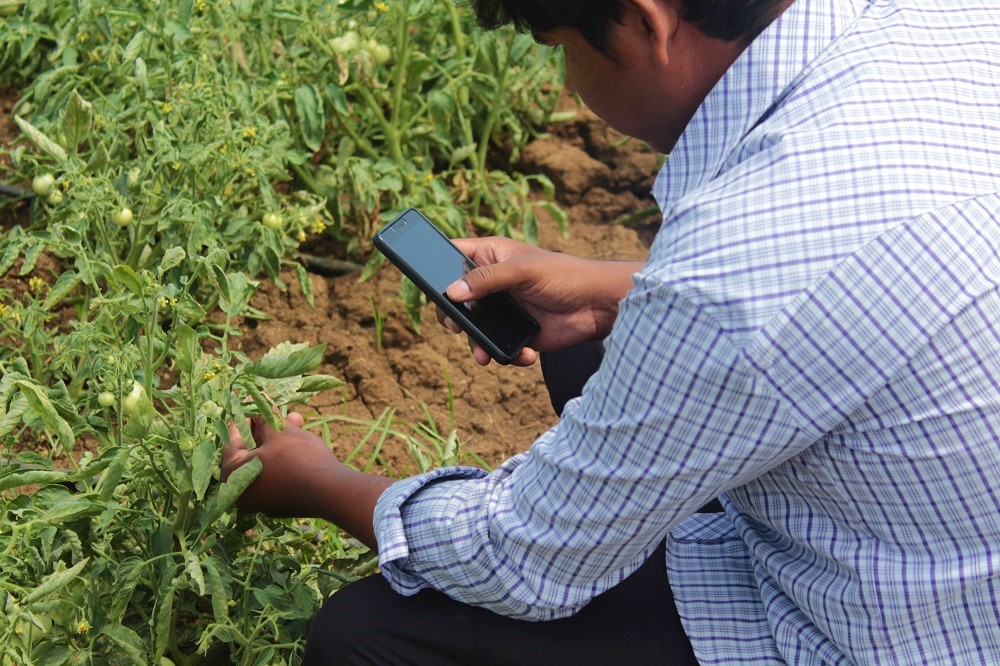Why African farmers should balance pesticides with other control methods
By Esther Ndumi Ngumbi. Reblogged from The Conversation. Insect pests cause almost half of the crop losses in Africa. If the continent is to feed its growing population, farmers must find ways to control them. Pests account for high losses in other developing regions too. For smallholder farmers in particular, pest management needs to be affordable, safe…
How does communication and its technical content shape farmer responses to plant clinic advice?
A recent study led by CABI and published in International Journal of Agricultural Sustainability, explores how communication and its technical content shape farmers’ response to advice delivered at plant clinics. How willing were farmers to accept or reject the technologies recommended at plant clinic consultations? And what were the reasons? The research was carried out…
Plant Doctors in Vietnam go digital
Plant clinics in Vietnam have received a major boost with the introduction of digital devices to facilitate the work of plant doctors. The use of tablets and smartphones has been proven to help plant doctors improve the quantity and quality of data generated from plant clinic operations. With improved ICTs, the captured data from plant…
NextGen Cassava Improving Food Security in Sub-Saharan Africa
The Bill and Melinda Gates Foundation has paired with the UK Government to award the Next Generation (NextGen) Cassava Breeding Project $35 million with the aim of promoting the growth of cassava crops and to improve food security in Sub-Saharan Africa.
Empoderamiento de la mujer a través de las clínicas de planta del Perú
Autor: Eduardo Augusto Neves Reconocimiento a: Marieta Cervantes y Fernando Escobal, INIA Baños del Inca Ing. Marieta Eliana Cervantes Peralta, doctora de plantas de la estación experimental de INIA ‘Baños del Inca’ en Cajamarca, Perú, conoce bien la realidad de las mujeres rurales. Hija de campesinos, vivió su niñez y adolescencia en una comunidad rural…
New coalition puts knowledge and skills into the hands of those who need it
CABI has joined forces with the ISEAL Integrated Pest Management (IPM) Coalition in the fight to implement better, less chemical-dependent, ways for farmers to manage agricultural pests and diseases that account for around 40% of lost crops worldwide. By linking with the Plantwise Knowledge Bank, the coalition aims to share knowledge on sustainable pest management…
Plantwise trials image recognition app Plantix in India
Plantwise and the German-based company PEAT (Progressive Environmental & Agricultural Technologies) are about to conduct an 18-month pilot study to assess the benefits of PEAT’s smartphone app Plantix, which can help to diagnose plant pests, diseases and nutrient deficiencies in the field.
Why intersectionality is key to women’s empowerment in agriculture
Women play a critical and potentially transformative role in agricultural growth in developing countries, but they face persistent obstacles and economic contraints which limit their full inclusion in agriculture. The FAO suggest that closing the gender gap in access to productive resources could increase agricultural output in the developing world by 2.5-4%, reducing the number…
Update: New Pest & Disease Records (5 Mar 18)
We’ve selected a few of the latest new geographic, host and species records for plant pests and diseases from CAB Abstracts. Records this fortnight include the first report of grapevine syrah virus-1 in China, the first report of Cocksfoot mottle virus infecting wheat in Ohio, USA and the first report of Tobacco mosaic virus infecting sesame…





